Essential Privacy Tools for Digital Nomads in 2025
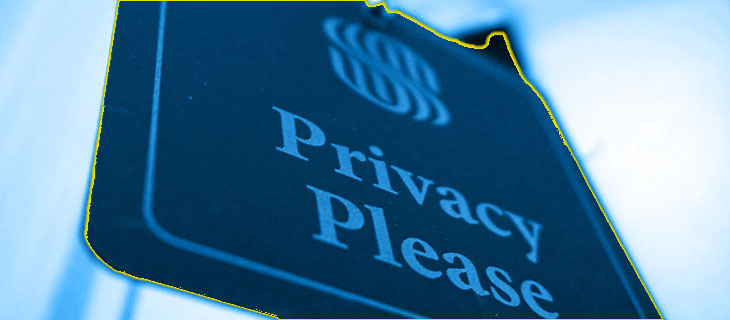
Working from a cafe in Porto sounds romantic until you realize everyone on that WiFi network can potentially see your client’s confidential files. Digital nomads juggle incredible freedom with serious security headaches that cubicle workers don’t even think about.
I’ve watched too many remote workers learn this lesson the hard way. One minute you’re sending invoices from a beachside restaurant, the next you’re explaining to clients why their project files ended up on a sketchy forum.
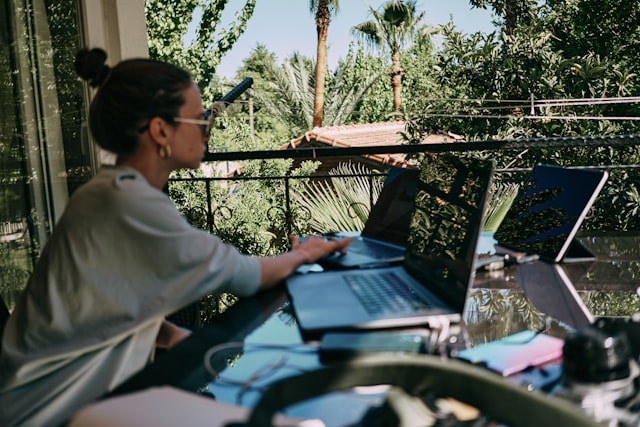
Why Location Independence Creates Unique Security Headaches
Here’s something most people don’t realize: crossing borders with a laptop full of client work is basically carrying a treasure chest through varying levels of digital Wild West. Some countries monitor everything, others couldn’t care less, and you won’t know which until it’s too late.
Last year alone, hackers intercepted data from 43% of public network users. That’s not some distant threat; it’s nearly half of everyone using coffee shop WiFi. And border agents? They’re getting nosier, demanding passwords and forcing app installations that would make privacy advocates weep.
The really sneaky attacks go beyond stealing your Netflix password. Hackers position themselves between you and your bank, silently recording everything. When these breaches hit remote workers, they lose around $4,700 on average (not counting the client relationships that evaporate).
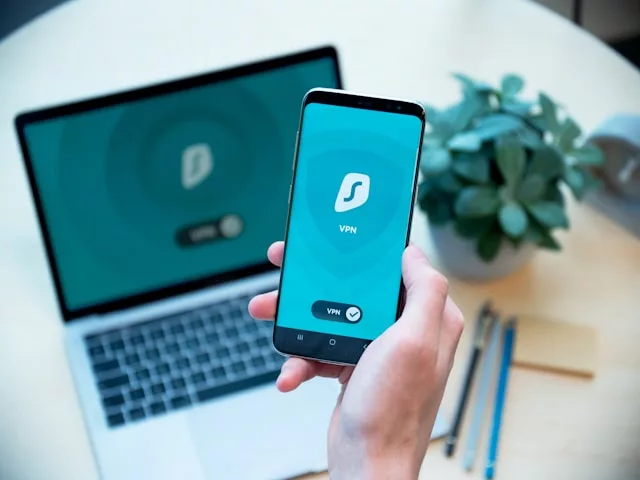
Virtual Private Networks: Your First Line of Defense
Think of VPNs as invisible tunnels through hostile territory. Your data travels encrypted, hidden from anyone trying to peek at your business. But here’s where it gets tricky: not all VPNs actually protect you, despite what their flashy ads claim.
WireGuard changed the game recently, delivering connections 25% faster than the old-school OpenVPN most services still use. And speed isn’t just convenience; try explaining to a client why their video call keeps freezing. For reliable protection that won’t tank your productivity, you’ll need a trusted vpn download that doesn’t sacrifice performance for security.
Kill switches sound dramatic, but they’re lifesavers when connections randomly drop (and they will). Split tunneling lets you route Netflix through your regular connection while keeping work stuff protected. Smart move if you’re uploading massive video files.
The best providers run servers in 60+ countries, and they genuinely don’t track what you’re doing. But verify those no-logs claims; plenty of companies say the right things until governments come knocking.
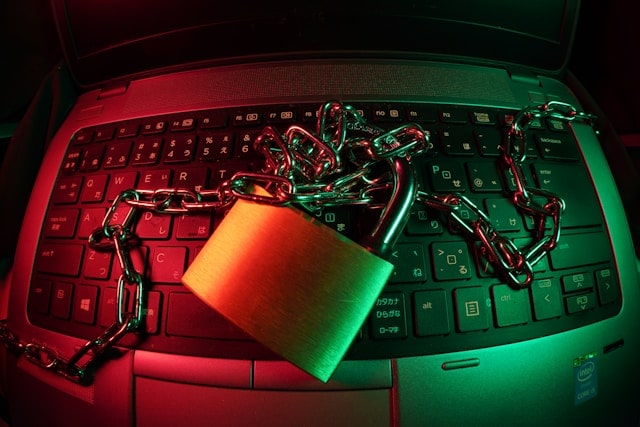
Password Chaos and How to Tame It
Let’s be honest: you’re probably using variations of the same three passwords everywhere. We all do it, even though it’s basically leaving copies of your house key under every doormat in the neighborhood.
Modern password managers aren’t the clunky programs from five years ago. They create ridiculous 20-character passwords you’ll never remember (and don’t need to). Everything syncs between your phone, laptop, and tablet using encryption that even the companies themselves can’t crack.
Biometric unlocking is brilliant when you’re working in public. No more obviously typing “SuperSecretPassword123!” while someone films over your shoulder. And those emergency access features? They’re relationship savers when your partner needs that utility bill login while you’re timezone-hopping.
Hardware security keys might seem excessive until you realize Google’s research shows they stop 100% of automated attacks. For less than fifty bucks, you’re essentially bulletproof against the most common hacks.

Communication Tools That Actually Keep Secrets
WhatsApp says it’s encrypted, but it still knows who you’re talking to, when, and how often. That metadata tells quite a story. Signal goes further, hiding even those breadcrumbs from prying eyes.
Business messaging gets complicated fast. Slack’s great until you realize everything flows through their servers unencrypted. Element offers similar features with actual privacy, though convincing teams to switch is another battle entirely.
Video calls leak surprising amounts of information. Your IP address, system details, and even what browser extensions you’re running. Stanford researchers found that popular platforms collect way more data than is necessary for the actual call.
Email encryption remains weirdly difficult after all these years. ProtonMail makes it bearable, automatically encrypting messages between users. For everyone else, you’re back to the digital equivalent of sending postcards.

Browsers That Mind Their Own Business
Websites track you through fingerprinting now, building profiles from tiny details like screen resolution and installed fonts. It’s creepy-accurate; they can identify you across completely different browsers.
Brave blocks this nonsense automatically. No setup, no configuration, just browse normally while trackers hit brick walls. Ad blockers aren’t just about annoyance anymore; they’re stopping malicious ads that infect computers just by loading.
Container tabs are genius for keeping Facebook (or any site) from following you around. Each container is like a separate browser that forgets everything when closed. Perfect for researching competitors without them remarketing to you forever.
DNS-over-HTTPS sounds technical, but it’s simple: it stops your internet provider from seeing every site you visit. Cloudflare’s 1.1.1.1 service is free and noticeably faster than most default options.
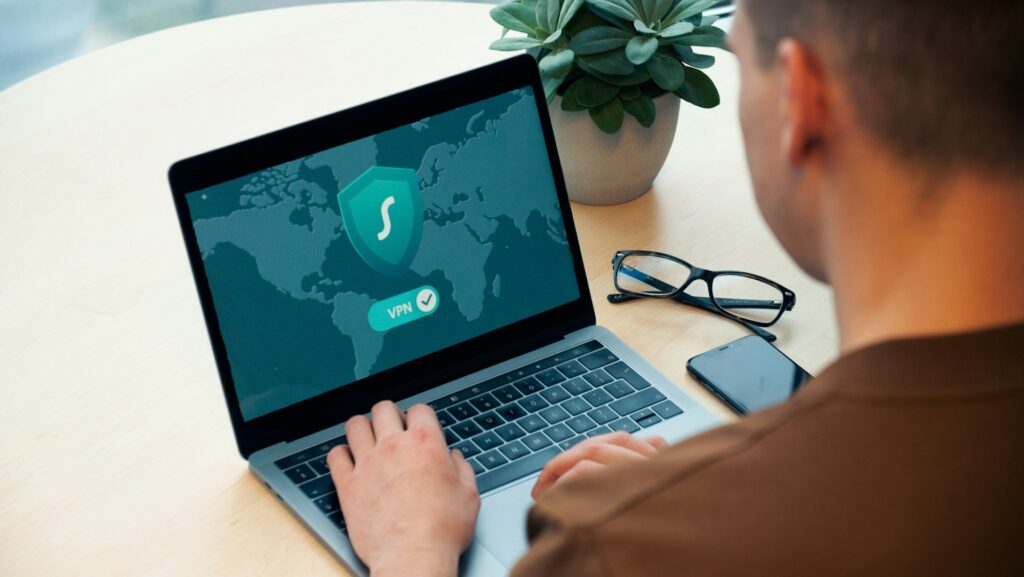
Making This Work in Real Life
Building bulletproof privacy doesn’t happen overnight, and honestly, perfect security would make actually working impossible. Start with a VPN and password manager, then add tools as you identify weak spots.
You may also enjoy
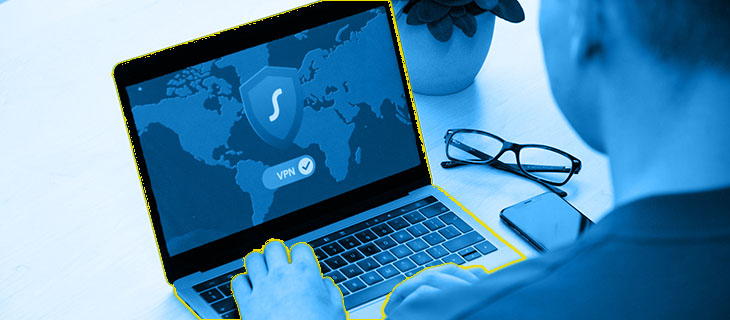
Last week, while hopping between coworking spaces in Lisbon, I watched a fellow digital nomad lose three client projects after hackers compromised his laptop at one of them. He’d been…
by Nomads
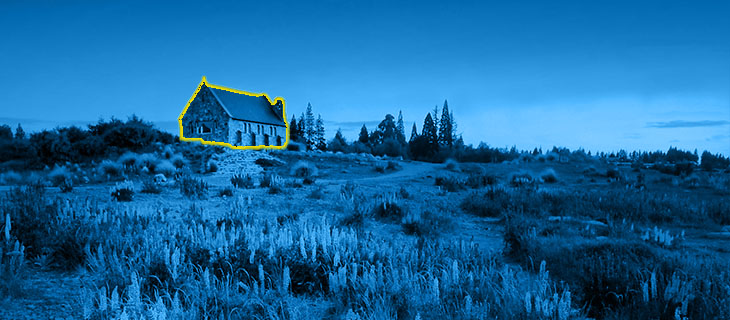
For many digital nomads, New Zealand seems like a faraway destination, almost impossible to work remotely from. Between difficult visa rules, a long plane ride to the country, and a…
by Brittany

Do you dream of living and working remotely from Dubai for one year? See if you can with our free Dubai digital nomad visa eligibility check! Simply answer the questions…
by Brittany
